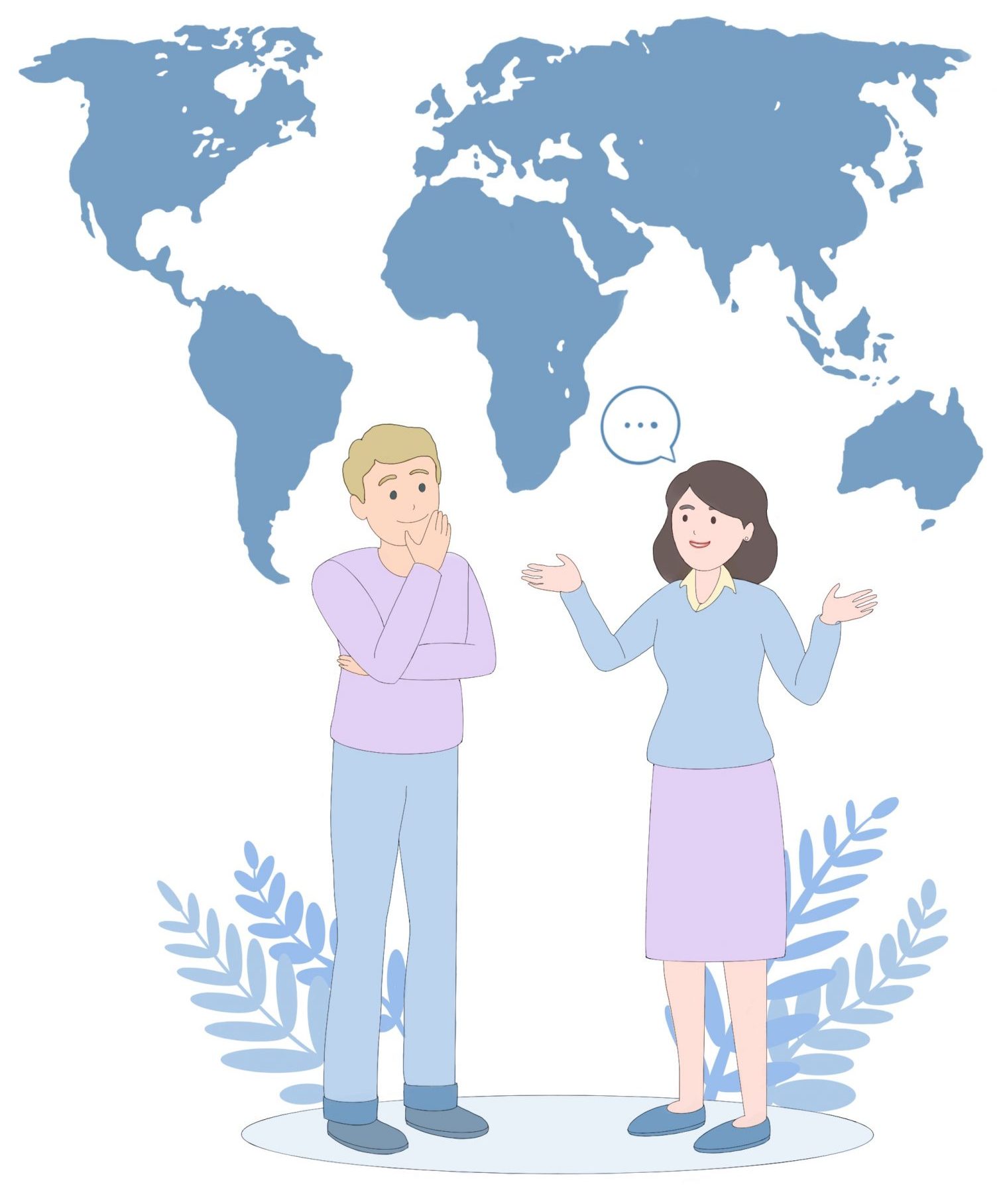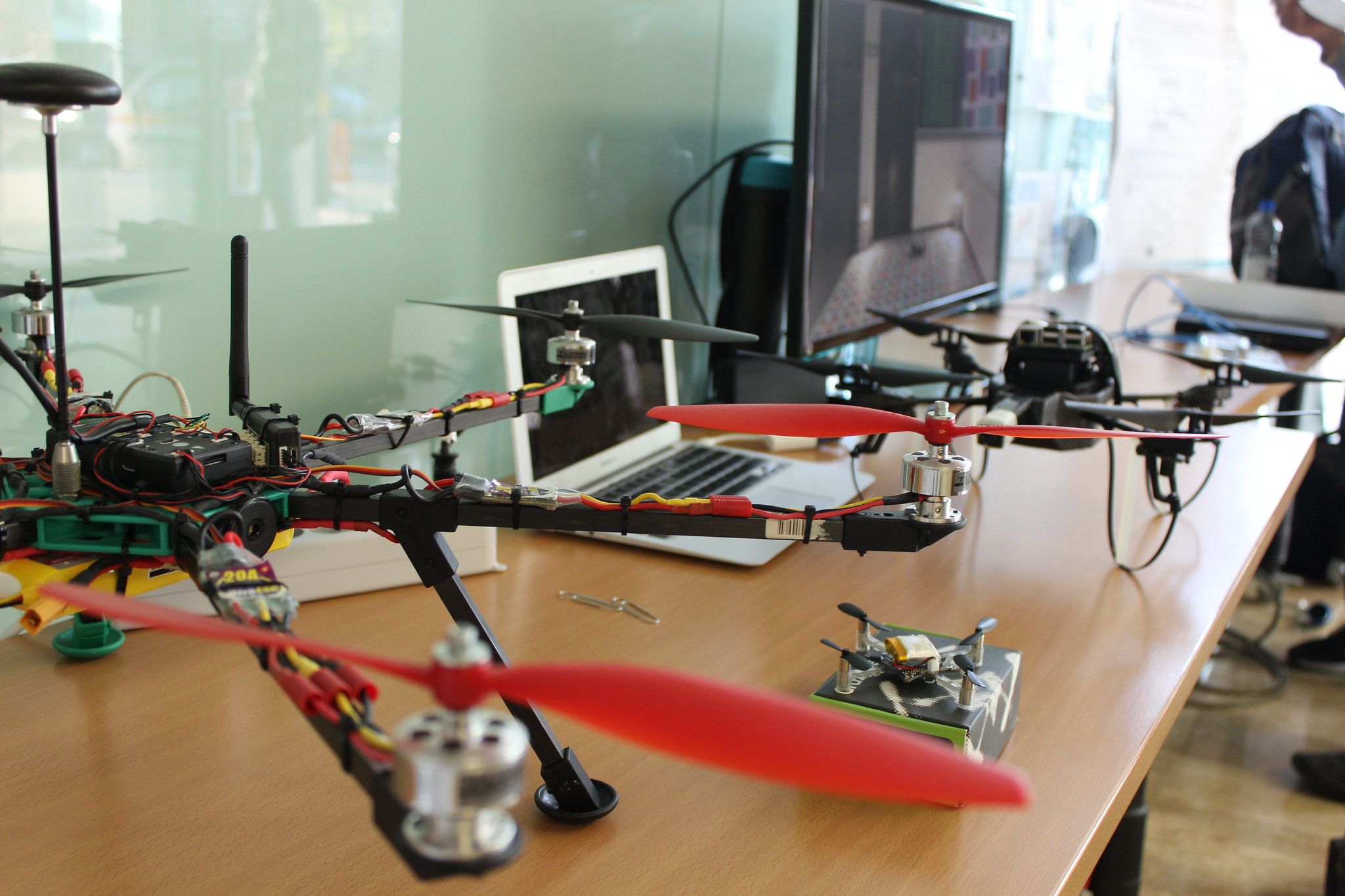Can I go abroad during my master?
Erasmus programme
What is the Erasmus programme?
It is a programme that allows a student to pass a semester abroad, with the possibility of substituting some of the exams he/she would have had to take at the Politecnico with some exams at the host location.

How does it work?
You must define which exams you want to replace with the exams you want to take at the host university, following a series of constraints and rules given by the programme. The main rule is that the maximum number of credits that can be substituted is thirty, equivalent to one semester. The exams that you want to substitute must be reasonably comparable to those that you would have taken in Italy. The correspondence is checked before departure. The grade you will then obtain abroad will be integrated into your study plan at Politecnico.
How does one participate?
The student must respond to the “Call for Mobility”, which is done twice a year. A ranking is drawn up, as places to go abroad are limited: the evaluation is made on the basis of career, i.e. the number of exams taken, grades and completion time. In general, priority is given to students who have never participated in the Erasmus programme during their university career. Once the ranking has been made, the locations are assigned to the students: those at the top will have access to their first preference and so on. If some students drop out or some places do not reach the maximum capacity, a second call for applications is made for those seats that remain vacant.
How is the choice of the destination made?
When the student responds to this call for applications, he or she indicates a number of locations where he or she would like to go, from a list of institutions that have an agreement with the Politecnico. Erasmus can only be done with universities with which Politecnico has an on-going agreement. The advice is to select the locations where you really have an interest in going, not because of the city but because of the university. In fact, if a student is selected for a particular university and then realizes that he or she cannot formulate a ‘Learning Agreement’ because there are no matches between exams, s/he is forced to give up.
What is the "Learning Agreement" and when is it drawn up?
The “Learning Agreement” is the contract between the student, the home university and the host university, which defines the study plan. It is drafted and approved before the departure. Within the Agreement, the correspondences between the subjects provided by the Politecnico and the subjects provided by the host university are entered. You can change the Learning Agreement once you are at the host university, but only for valid reasons (e.g. limited number of courses or overlapping timetables).
How do you find correspondences between courses?
The student must browse the “manifesto” (i.e. the list of courses) of the host university. Once he/she has chosen the courses he/she would like to attend, he/she must find the courses provided by the Politecnico which have approximately 70% overlap with the chosen courses. Once the list of matches has been defined, the student sends the proposal to the Erasmus contact person, who carries out checks with a view to approval. This process is iterative: the student makes a proposal, which triggers a discussion with the contact person, who offers advice and evaluation. For example, the student finds two courses provided by the host university that could correspond to a course at the Politecnico and asks the contact person for advice on which one is a better match. There is a portal with a series of matches that have been approved over the years to facilitate the process.
Are there any forms of financial assistance?
There is a monthly grant, paid by the European Commission. In order to obtain it, the student must be subject to a number of constraints: for example, if the student leaves and then does not pass any exams, he/she must return it.
“There is a mobility grant for Erasmus programme participants”
What is the timing for participating in the Erasmus project?
Usually the call for applications comes out at least one semester before the one in which you would like to leave. It is possible to renounce and there is no maximum time limit. Obviously, the earlier you communicate it the better, because, clearly depending on the timing, you may leave the space for other students in the ranking list.
For what is it best to contact the contact person and for what the exchange office?
For logistical, bureaucratic and procedural aspects, it is best to contact the exchange office, whereas all didactic aspects, such as the Learning Agreement, signatures on application documents the contact person is to be involved.
How does the conversion of votes take place? Can a grade be refused?
“The conversion of grades is automatic, the grade can be rejected”
The conversion is done, in 99% of cases, automatically. So, depending on the location and depending on the grade, a conversion is made to the corresponding exam at the Politecnico. It is not the contact person who gives a grade or makes the conversion, the contact person confirms the conversion, which is given by a table. Once the conversion has been made, the grade is published in the same way as for any Politecnico exam; the student then also has the option of rejecting it, in which case he/she must retake the exam at the Politecnico.
Is there a minimum number of credits to be taken?
There is no minimum number of credits, not even on the “Learning Agreement”. A student could even plan to do five credits only, although this is not recommended for various reasons, including ethical reasons: Erasmus is a university programme, not a holiday!
Can you do your thesis in Erasmus?
When you go abroad, you can choose between three options: exams, exams plus thesis or thesis only. Thus, the thesis can also be done abroad. You need to find a location and a supervisor, but also a teacher at the Politecnico who is in charge of checking the quality of the work and presenting the student in the graduation session. The thesis can take various forms: there are theses conducted abroad where the technical-scientific work is actually carried out between the two institutions, while there are theses where the work is mainly carried out at the foreign institution and the Politecnico teacher only does supervisory work.
“The thesis can also be done abroad”
Double degree programmes, university "alliances", Enhance project and Free mover
What programmes exist besides Erasmus to go abroad?
Apart from Erasmus, which is the most structured programme available, there are other possibilities for going to study abroad. There are the double degree programmes, through which a student obtains two degrees, or the university “alliances” of which the Politecnico is part, such as “Alliance4Tech” or “Idea League”. A third possibility is the Enhance project, which allows students to include in their study plan courses from foreign universities that are not provided by the Politecnico. Lastly, there is the “Free Mover” option in which the student chooses a foreign university that does not have an agreement with the Politecnico and takes charge of the whole procedure him/herself.
How is the double degree programme structured?
Although there are a number of requirements that may vary for each individual double degree agreement, and therefore for each individual institution, there are a number of features common to almost all double degree programmes. For example, unlike the normal master’s degree programme where the student must acquire 120 credits, in double degree programmes 140/150 credits must be acquired. Of these, 20 credits of the thesis and at least 60 credits of courses must be taken at the Politecnico; the remainder can be taken at the foreign university. The courses taken abroad are subject to the same constraints as the Erasmus programmes: they must correspond to those provided by the Politecnico, which means an overlap of at least 70% of the programmes.
At the end of the course, in addition to the master’s degree from the Politecnico di Milano, the student also acquires the degree from the foreign institution at which he or she undertakes the double degree programme.
What are university alliances?
The Politecnico participates in two alliances: Alliance4Tech and IDEA League, whose basic idea is to bring together the excellence of academia from a technical point of view, at a European level. Participating in this type of programme is a guarantee of the quality of the teaching being delivered, both within the Politecnico and in institutions abroad. Alliances have a system very similar to Erasmus, although they have their own rules. As with Erasmus, one can structure a study plan by taking some of the exams that would normally be taken at the Politecnico at other universities in the “alliance”.
What is the Enhance project?
The student must browse the study manifesto of the host university. Once he/she has chosen the courses he/she would like to attend, he/she must find the courses offered by the Politecnico which have approximately 70% overlap with the chosen courses. Once the list of matching courses has been defined, the student sends the proposal to the Erasmus contact person, who needs to check it in view of the approval. This process is iterative: the student makes a proposal, which initiates a discussion with the contact person, who offers advice and evaluation. For example, the student finds two courses provided by the host university that could correspond to a course at the Politecnico and asks the contact person for advice on which one is the best match. There is a portal with a series of matching courses that have been approved over the years to facilitate the process.
What is a "Free Mover"?
A “Free Mover” is a student who chooses to do a period abroad and take courses at a foreign institution that does not have any kind of agreement with the Politecnico. The “Free Mover” student is independent and is responsible for everything that needs to be done to go to the foreign institution. The Politecnico recognises all or part of the credits acquired abroad with the equivalent courses at the Politecnico.
If you go abroad, what taxes do you have to pay?
For Erasmus, double degree, Alliance4Tech, IDEA League and Enhance projects, taxes in foreign institutions are not paid. The student only continues to pay the taxes at the Politecnico. In the case of the “Free Mover”, the student must pay taxes as if he or she were a resident student at the foreign university.

What forms of financial support are there for these programmes?
The support depends very much on the programme. For example, for the Enhance programme the student receives the same monthly grant that Erasmus students receive. As for the Alliance4Tech and IDEA League programme, you receive a similar monthly grant but not from the European Commission. The cost of the stay, however, remains entirely the student’s responsibility. The “Free Mover” does not receive any financial support.
How can one find Politecnico's partner universities?
There is a web page on the Politecnico website that groups all the foreign institutions with which the Politecnico has some kind of agreement. Clicking on a location shows the list of mobility agreements: double degree, Erasmus, and so on, which are related to that particular institution.
What is the procedure for participating in these programmes?
For all of these programmes, one must respond to the “call for mobility”, which is issued twice a year and is managed by the university’s mobility service. Students can express up to five preferences, where each preference is composed of the indication of the foreign institution and the programme they wish to join. For example, a student may indicate as first preference a period in Barcelona in Erasmus, as second a period in Berlin with Enhance and as third a period in Zurich through IDEA League. This information is taken over by the university’s mobility service, which checks that the requirements for each are met by the student and the places are available.
What advice can be given to a student who wants to do a study period abroad?
As Politecnico’s teaching offer is scientifically solid and varied, the advice is to think about the period abroad not only focusing on teaching but on the whole experience, cultural and social, with a 360-degree perspective.
“One must think of the period abroad as an all-round experience”




